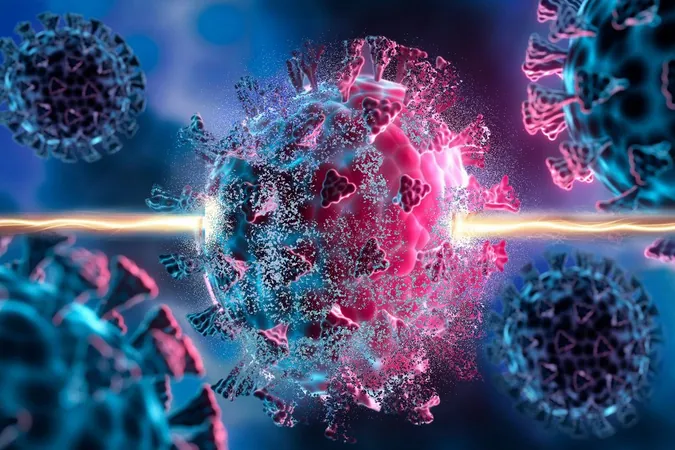
How Early Detection of 'Bubble Boy Disease' is Transforming Lives of Newborns
2025-06-10
Author: Wei
The Heart-Wrenching Story of Young Mannat Singh
In Singapore, a six-day-old baby named Mannat Singh faced a life-threatening challenge — he was diagnosed with severe combined immunodeficiency (SCID), a disorder that renders infants without a functioning immune system. This means that even the simplest cold could have been fatal. Without immediate treatment, Mannat’s chances of celebrating his first birthday were grim.
A Mother's Guilt and a Family's Fear
Mannat’s mother, Harminder Kaur, a dedicated nurse, couldn’t shake the guilt of feeling responsible for her son's condition. "I made him this way," she recalled, grappling with the emotional turmoil as she and her husband, Harminder Singh, an IT consultant, navigated this harrowing diagnosis.
Understanding SCID: 'Bubble Boy Disease'
Known colloquially as 'bubble boy disease,' SCID affects one in 50,000 infants globally, with a new case appearing in Singapore about every two years. The term references David Vetter, an American boy who lived his entire life isolated in a sterile bubble due to the same genetic disorder.
The Powers of Early Detection
Fortunately for Mannat, his illness was detected early through Singapore’s National Expanded Newborn Screening (NENS) programme, initiated in 2006 to identify metabolic and hereditary diseases in newborns. Expanded in 2019, it now screens for serious childhood-onset conditions, including SCID and cystic fibrosis, and a staggering 96 percent of newborns are screened.
The Groundbreaking Screening Process
Testing involves a simple heel prick to collect blood within 24-72 hours after birth. For SCID, specialists examine the blood for T-cell receptor excision circles (TRECs), a crucial indicator of proper T-cell function. Any abnormalities prompt further testing, potentially saving the child’s life.
From Screening to Treatment: A Race Against Time
The only effective cure for SCID is a bone marrow transplant from a healthy donor, ideally performed within the first three to four months of life to avert severe infections. Doctors emphasize the urgency of early diagnosis to initiate preemptive measures against infections.
A Beacon of Hope: Mannat’s Journey
Mannat was the first newborn in Singapore to be diagnosed with SCID at birth, paving the way for a stem cell transplant using his mother’s bone marrow before any serious symptoms emerged. Today, at 19 months old, Mannat is thriving and full of life, relishing his childhood alongside his older brother, Birakaal.
Looking Towards a Bright Future
Harminder Kaur expresses profound relief: "Life has returned to normal. We’ve put the past behind us and are excited for our boys to grow up healthy and happy." Mannat’s story not only illuminates the critical importance of early detection but also stands as a testament to the advances in medical science and the power of hope.




 Brasil (PT)
Brasil (PT)
 Canada (EN)
Canada (EN)
 Chile (ES)
Chile (ES)
 Česko (CS)
Česko (CS)
 대한민국 (KO)
대한민국 (KO)
 España (ES)
España (ES)
 France (FR)
France (FR)
 Hong Kong (EN)
Hong Kong (EN)
 Italia (IT)
Italia (IT)
 日本 (JA)
日本 (JA)
 Magyarország (HU)
Magyarország (HU)
 Norge (NO)
Norge (NO)
 Polska (PL)
Polska (PL)
 Schweiz (DE)
Schweiz (DE)
 Singapore (EN)
Singapore (EN)
 Sverige (SV)
Sverige (SV)
 Suomi (FI)
Suomi (FI)
 Türkiye (TR)
Türkiye (TR)
 الإمارات العربية المتحدة (AR)
الإمارات العربية المتحدة (AR)